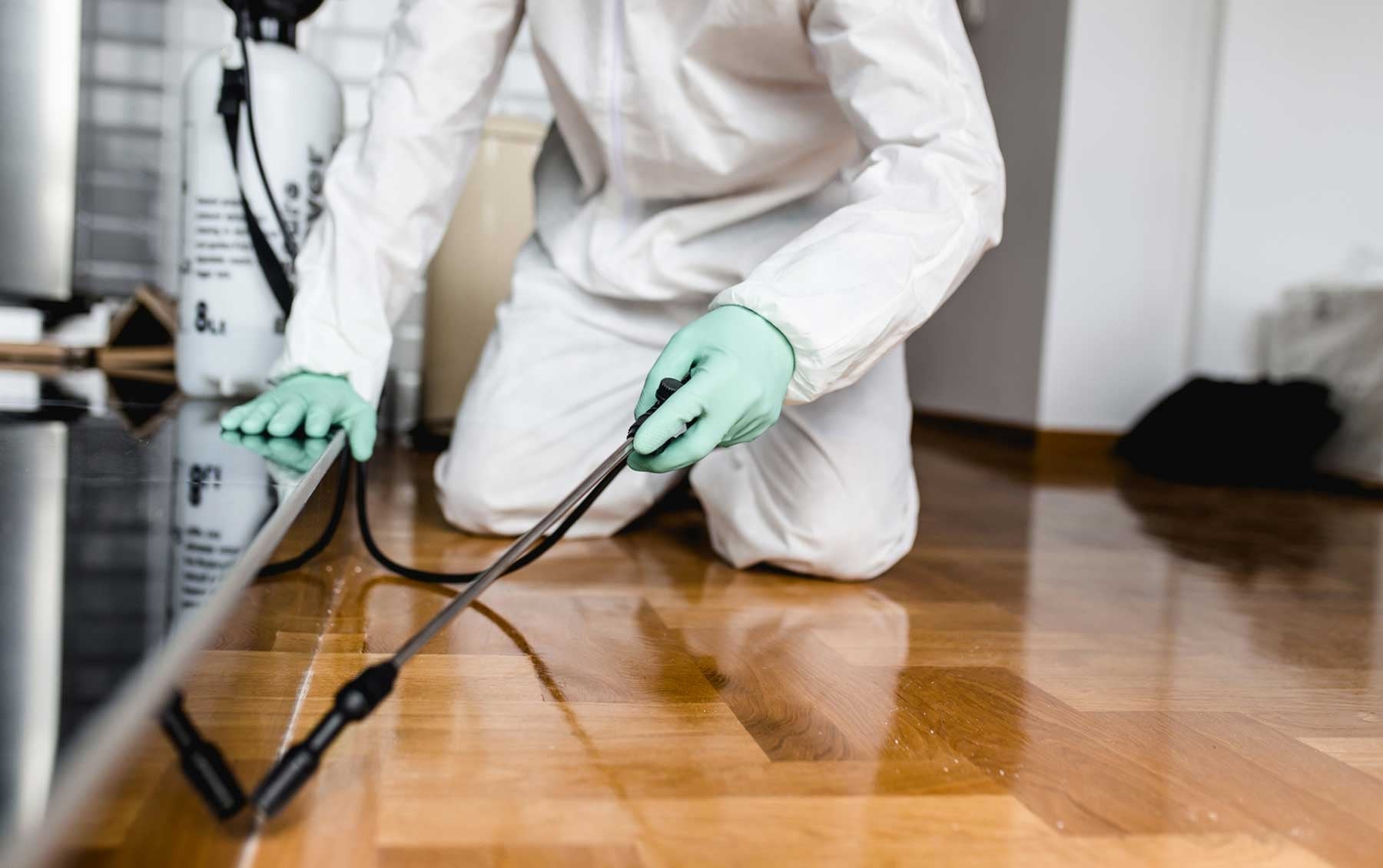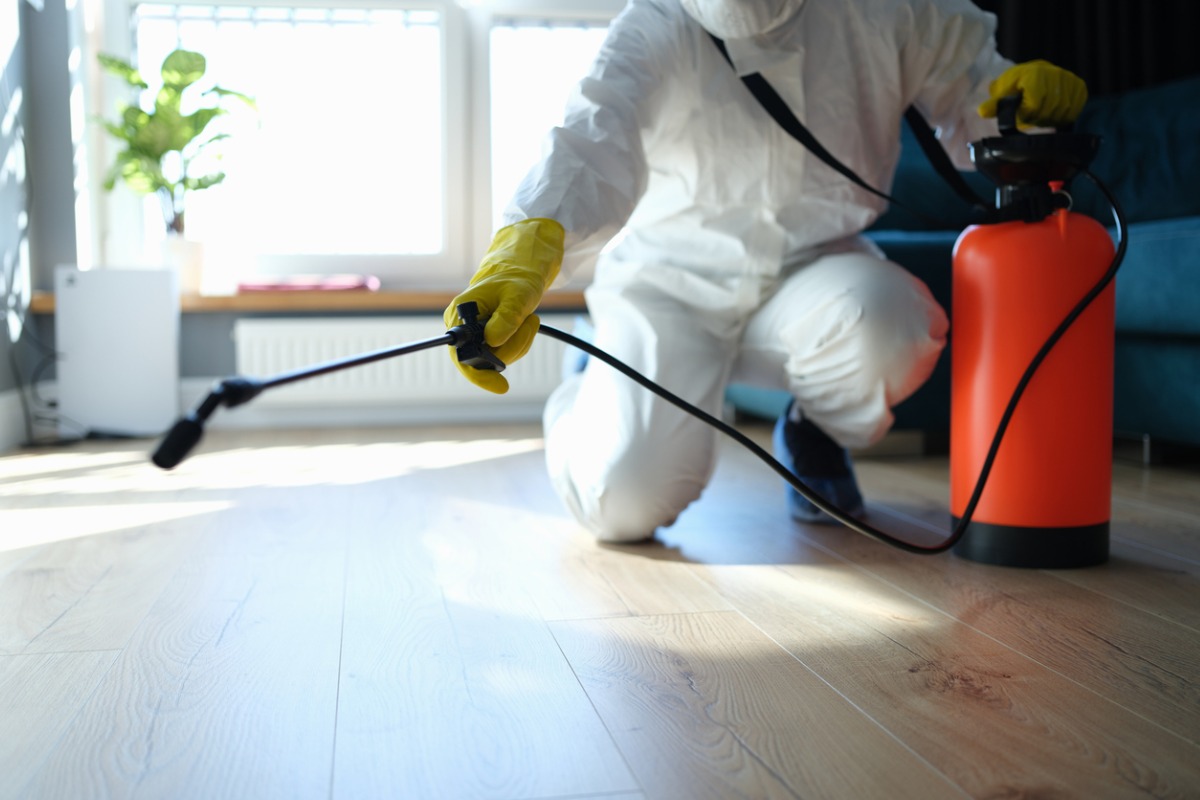Safe and Reliable Insect Control for Lasting Protection
Efficient insect administration requires a diverse approach that balances eco-friendly integrity with the requirement for efficient pest suppression. The nuances of these approaches may not be promptly clear, motivating a closer evaluation of the techniques that can lead to lasting bug control end results.
Comprehending Insect Control Techniques
Insect control includes a variety of approaches intended at managing and removing unwanted insects and rodents that can endanger both health and wellness and building. Recognizing these methods is vital for efficient insect administration.
The key groups of parasite control techniques include mechanical, organic, and chemical techniques. Mechanical techniques entail physical obstacles and traps to avoid pest entry and capture undesirable species. As an example, utilizing displays on home windows or using sticky catches can considerably reduce insect populaces without presenting harmful compounds.

Chemical pest control is usually the most identified approach, utilizing pesticides to eliminate bugs. These chemicals can be efficient but have to be utilized with care to prevent adverse impacts on non-target varieties and the setting.
Benefits of Eco-Friendly Solutions
How can environment-friendly remedies change bug control methods? The adoption of eco-friendly insect control methods supplies various advantages, dramatically improving the performance and safety and security of bug management (exterminator coquitlam). Firstly, these options utilize all-natural active ingredients, lowering the dependence on harmful chemicals that can position threats to human health and the setting. This change not only secures family pets and households however also decreases the potential for dirt and water contamination.

An additional benefit is the favorable influence on local biodiversity. Environmentally friendly remedies are designed to target details parasites while preserving advantageous pests and wildlife, advertising a well balanced ecosystem. This strategy lines up with the growing consumer need for lasting practices, enhancing the credibility of bug control companies.
Integrated Insect Management Methods
The execution of environment-friendly solutions naturally brings about the fostering of Integrated Parasite Management (IPM) techniques, which further boost pest control effectiveness. IPM is an all natural technique that combines several methods to handle insect populations while minimizing ecological effect. This strategy highlights the usage of biological, cultural, mechanical, and chemical controls, making certain a sustainable and balanced method of pest administration.
One essential element of IPM is the thorough analysis of parasite task and ecological conditions. By monitoring parasite populaces and recognizing their life cycles, professionals can apply targeted interventions that interfere with the insect's habitat or lifecycle, minimizing reliance on chemical pesticides. Furthermore, cultural methods such as crop turning and habitat control can dramatically decrease bug facility and recreation.
An additional important component is using organic control representatives, such as advantageous bugs or microbes, which can naturally subdue insect populaces. When chemical applications are needed, IPM focuses on using low-risk pesticides and uses them precisely, decreasing direct exposure to non-target microorganisms and people.
Integrating IPM techniques not only enhances bug control performance but also advertises a much safer ecosystem, lining up with the expanding need for lasting methods in pest monitoring.
Safe Practices for Property Owners
Comprehending the relevance of secure practices in bug control can equip homeowners to efficiently handle bug problems while protecting their health and the their explanation setting. Carrying out preventive actions and safe methods is vital in decreasing direct exposure to unsafe chemicals.
Home owners must first examine their atmosphere for problems that attract bugs, such as standing food, water, and mess waste. Routinely cleaning and sealing access points can discourage insects from getting into the home. Utilizing natural deterrents, such as important oils or diatomaceous earth, can give efficient choices to chemical pesticides.
When chemical therapies are essential, property owners need to select items that are especially classified as safe for residential usage. It is important to adhere to application guidelines carefully to avoid too much exposure. Moreover, utilizing targeted therapies in locations where pests are determined, as opposed to blanket spraying, can substantially minimize chemical usage.
Last but not published here least, keeping open communication with bug control experts is important. Property owners ought to ask concerning the safety of products made use of and request green alternatives whenever possible. By embracing these safe practices, homeowners can create a much healthier living setting while effectively taking care of insect issues.
Tips for Long-Term Security
Establishing a pest monitoring strategy that highlights lasting defense can significantly improve the efficiency of the risk-free practices previously gone over. To achieve this, property owners must apply regular evaluations of their home, concentrating on hidden areas such as attics, basements, and crawl spaces. Early discovery of bug task is essential in stopping problems from holding.
In addition, maintaining a clean setting is important. This includes appropriate food storage space, without delay cleaning spills, and regularly disposing of rubbish. These techniques decrease attractants that attract bugs into the home. Moreover, securing entry points, such as cracks around doors and home windows, can properly obstruct prospective insect accessibility.
Landscape design must likewise be thought about; keeping plants trimmed and maintaining a range in between vegetation and the home reduces hiding areas for insects. Utilizing all-natural deterrents, such as important oils or diatomaceous earth, can additionally prevent problems without turning to harsh chemicals.
Last but not least, working together with an expert insect control service for regular assessments can offer an added layer of protection. These specialists can offer tailored recommendations and progressed treatments, making sure that your home stays secured versus parasites in the long-term.
Conclusion
Finally, secure and reputable pest control needs a complex strategy that stresses eco-friendly techniques and incorporated parasite management. By implementing natural deterrents, conducting routine inspections, and keeping appropriate sanitation, homeowner can significantly lower pest populaces while protecting beneficial bugs and the setting. Collaboration with expert parasite control services boosts the performance of these approaches, making sure customized services that supply enduring defense and satisfaction against future invasions.
Efficient bug management calls for a multifaceted approach that stabilizes environmental stability with the need for effective pest reductions. The fostering of environment-friendly pest control methods offers countless advantages, dramatically boosting the performance and safety and security of bug administration.The execution of green services naturally leads to the fostering of Integrated Bug Monitoring (IPM) methods, which further boost insect control effectiveness. exterminator coquitlam. By checking pest populaces and determining their life cycles, specialists can carry out targeted treatments that interfere with the insect's environment or lifecycle, lowering reliance on chemical pesticides.In final thought, trustworthy and safe insect control requires a diverse technique that highlights eco-friendly approaches and find more incorporated pest management